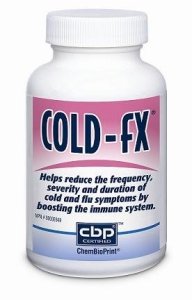Natural Therapies for the Prevention and Treatment of Influenza and the Common Cold | Health & Medications
Natural Therapies for the Prevention and Treatment of Influenza and the Common Cold | Health & Medications
In my last post, I discussed the Flu vaccine and its overall reduced effectiveness this year. As a result, this has left a lot of individuals exposed to the effects of the influenza virus, which has become evident by the amount of schools closing across the nation and increased numbers of reported deaths, particularly amongst pediatric patients. To make things worse, due to drug shortages many commonly prescribed medications such as oseltamivir (Brand name: Tamiflu) are on back order as a result of the increased demand. Thankfully, there are some natural alternative therapies people can use in order to help prevent and reduce the severity and duration of the influenza virus and the common cold.
1. Echinacea
Echinacea is a species of plant that is closely related to sunflowers, daisies, and ragweed. They are indigenous to the eastern Rocky Mountains in the United States, but are also cultivated for medicinal uses throughout the world, particularly in the US, Canada, and Europe.
Echinacea has been shown to be helpful for treating and preventing the common cold, influenza, and other upper respiratory tract infections. In a double blind placebo controlled trial Echinacea 5 mL by mouth twice daily for 10 days reduced the duration and severity of colds to a mean of 6 days, compared to 9 days with placebo. In addition, a randomized, double-blind, double-dummy, multicenter, non-inferiority trial based out of the Czech Republic compared Echinacea to the standard of care treatment here in the United States, which is oseltamivir (Brand name: Tamiflu). This trial was a much larger trial then the aforementioned trial and included 473 patients with early influenza symptoms (less than 48 hours). The results of this trial demonstrated that treatment with Echinacea for 10 days was as effective as a 5 day treatment of oseltamivir but resulted in a reduced overall risk of complications and adverse effects.
2. Ginseng
The term 'ginseng' typically refers to extracts prepared from plants of the Panax genus, most commonly Panax ginseng (Asian ginseng) or Panax quinquefolis (American ginseng). American ginseng grows mainly in North America, with much of it being produced in Ontario, Canada. Wild American ginseng is so extensively sought that it has been declared a threatened or endangered species in some states in the US.

Much controversy remains concerning the efficacy of the Korean red ginseng in reducing influenza-like illness incidence. Korean red ginseng has become a popular influenza-like illness medication in Korea. The ginseng extracts has been evaluated in 4 recent randomized controlled trials to prevent common cold, flu, or upper respiratory tract infections. Two studies did not reveal differences between the ginseng extract and placebo in terms of decreasing duration, severity, or frequency of overall symptoms. However, the other two studies showed the ginseng extracts decreased duration, severity, and frequency of symptoms. So the overall results appear to be mixed regarding Korean red ginseng.

However, another herbal product called COLD-fX, a proprietary extract of the roots of North American ginseng (Panax quinquefolius), has shown benefit. In a double-blind placebo controlled trial amongst 43 adults aged greater than 65 years of age, reported significantly fewer acute respiratory infections (32%) compared to those taking a placebo (62%). In addition, these patients reported a significantly reduced duration of symptoms in the COLD-fX group compared to placebo (5.6 days in the COLD-fX group vs. 12.6 days in the placebo group).
3. Vitamin C (Ascorbic Acid)
Vitamin C is a water-soluble vitamin that is essential for human survival. Unlike many other mammals, the human body does not produce vitamin C, so sufficient levels must be obtained from the diet. Dietary sources of vitamin C include various fruits and vegetables, particularly citrus fruits such as oranges.

Like ginseng, there is substantial controversy about the effectiveness of vitamin C for treating the common cold. This is because for the majority of people taking vitamin C supplements on a regular basis only slightly reduces the length and severity of colds and does not reduce the number of colds that they catch. However, the majority of evidence shows that taking high doses of vitamin C orally might decrease the duration of cold symptoms by 1-1.5 days in some patients. Thus overall, 1 – 3 grams of Vitamin C daily appears to be beneficial for treating the common cold and doses above 2 grams a day seem to work better than lower doses.
4. Zinc
Zinc is a mineral that is an essential nutrient for plants and animals. In humans, zinc is involved in various physical processes, including growth, immunity, reproductive function, and neurobehavioral development. Nonetheless, because the human body does not store excess zinc, an adequate supply must be regularly consumed as part of the diet. Common dietary sources of zinc include red meat, poultry, and fish. Low-income countries in which these foods are not readily available may have a higher prevalence of zinc deficiency.

Using zinc oral lozenges seems to be beneficial in helping treat the common cold in adults. The majority of clinical trials and analyses of clinical research show a significant decrease in the duration of symptoms of the common cold when adults take zinc gluconate or zinc acetate lozenges providing 9-24 mg of elemental zinc per dose. It is recommended that lozenges be taken every 2 hours while awake, starting within 48 hours of symptom onset for a total daily dose of >75 mg in order to attain a mean duration reduction of 3 days.
Recent Posts:
- The Flu Vaccine: Only 10% Effective – Is it still worth it?
- Ages & Stages of Childhood Development
- Common Infant Conditions

I like natural "medicine" ... I think that people are becoming too dependent on pills. Sure it's convenient but what if in the long run your bodies resistance to certain diseases diminishes because of you taking pills. I don't know if it is possible for your body to become reliant on you taking pills. Natural treatments feel like a more "healthy" way of getting rid of whatever ails you.
I depends on the medication but your body can be both resistant and dependent on certain medications. Always have to weigh the risk versus the benefit as with anything else in life.
I have a cold right now and it sucksss :/
I've been lucky to avoid it so far but you're definitely not alone. Hope you feel better mate
Your Post Has Been Featured on @Resteemable!
Feature any Steemit post using resteemit.com!
How It Works:
1. Take Any Steemit URL
2. Erase
https://3. Type
reGet Featured Instantly � Featured Posts are voted every 2.4hrs
Join the Curation Team Here | Vote Resteemable for Witness
My Echinacea medicine arrived today. :-) I had good results with it in the past. I can recommend it.
Glad to hear! Thanks for stopping by :)
I am very fond and useful ...
Lol You referring to the post or yourself?
Nice work, very interesting.